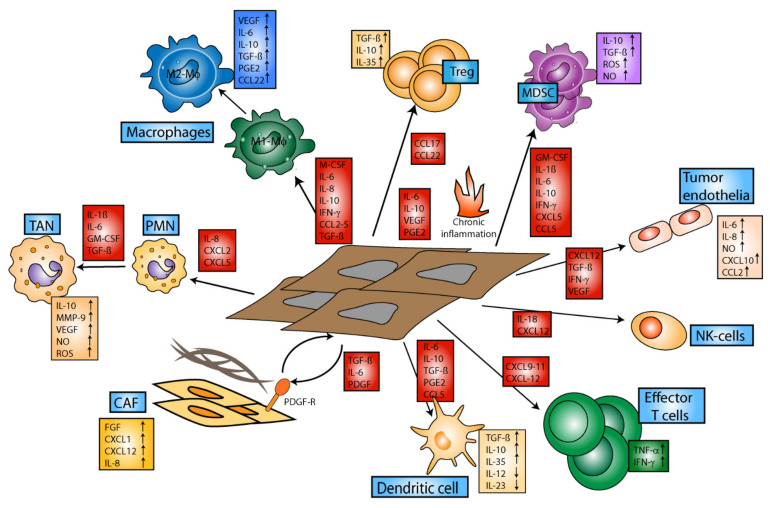Figure 1.
Tumor-induced immune modulation within the tumor microenvironment. Tumor cells secrete various cytokines, chemokines and soluble factors that generate a chronic inflammatory state within the TME that favors the accumulation of immunosuppressive cell types and impairs effector T cell function. Additionally, both immunosuppressive and effector immune cells, as well as non-immune cells such as cancer-associated fibroblasts and endothelial cells, contribute to the maintenance of this inflammatory micromilieu, hampering an effective anti-tumor immune response. Abbreviations: CAF = cancer-associated fibroblasts; IFN-g = interferon-gamma; Mo = macrophages; MDSCs = myeloid-derived suppressor cells; MMP-9 = matrix-metallopeptidase 9; NO = nitric oxide; PDGF-R = platelet-derived growth factor receptor; PGE2 = prostaglandine E2; PMN = polymorphonuclear neutrophils; ROS = reactive oxygen species; TAN = tumor-associated neutrophils; TGF-ß = transforming-growth factor beta; TNF-α = tumor necrosis factor alpha; VEGF = vascular endothelial growth factor.

